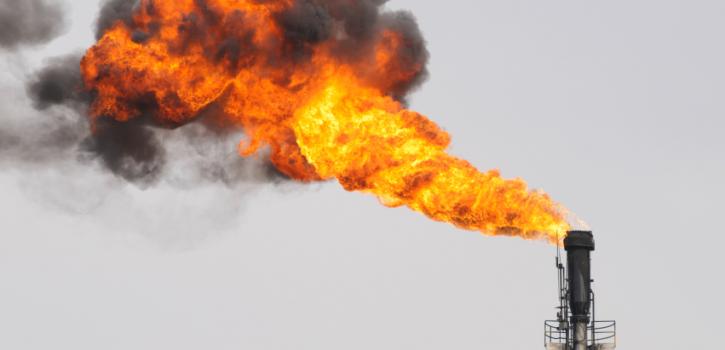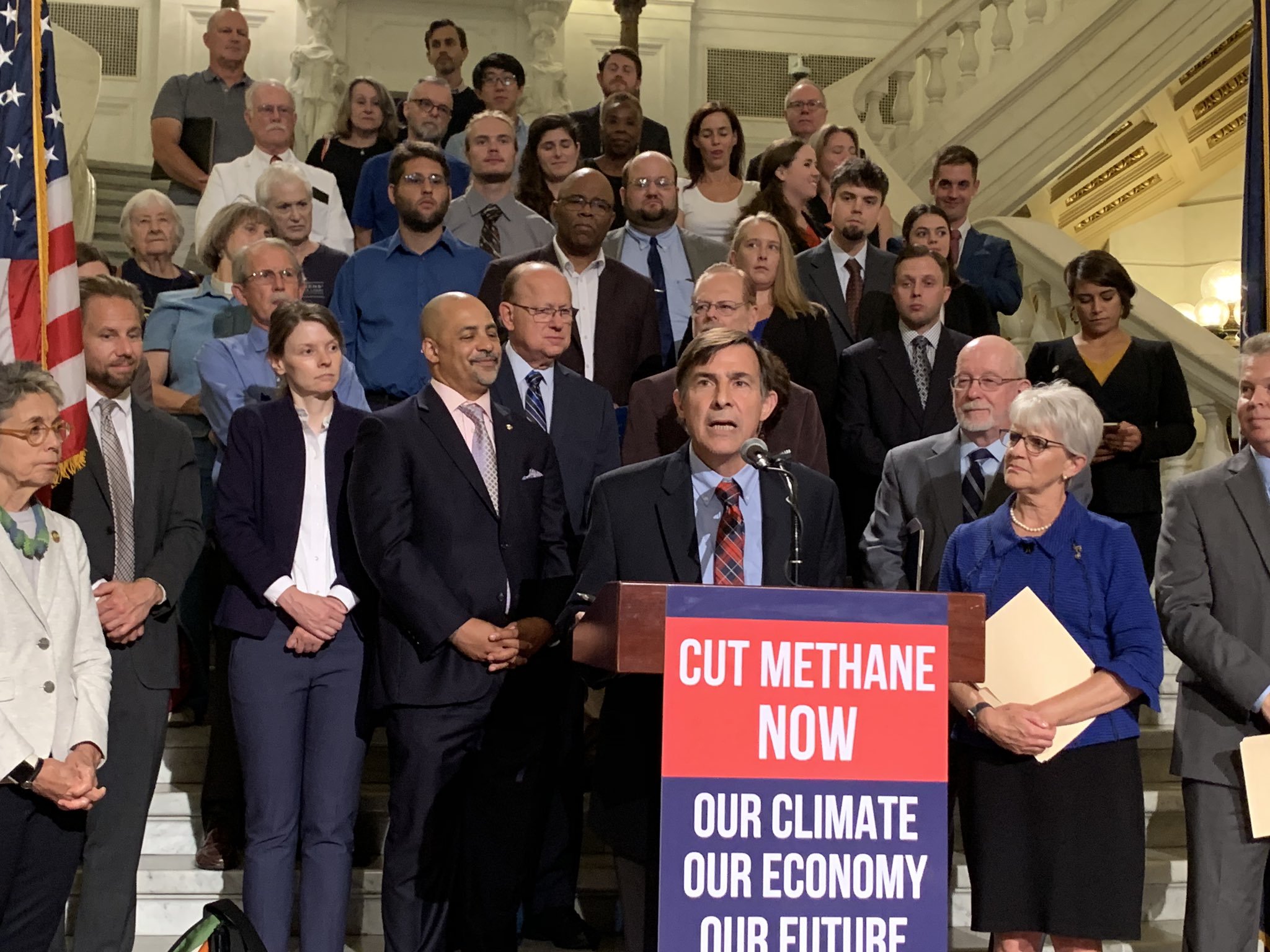
Trump Rolls Back Methane Climate Standards for Oil and Gas Industry
Emily Holden / Guardian UK
Methane is a greenhouse gas that heats the planet far faster than CO2 and addressing it is critical to slowing global heating
(August 13, 2020) — The Trump administration is revoking rules that require oil and gas drillers to detect and fix leaks of methane, a greenhouse gas that heats the planet far faster than carbon dioxide.
Methane has a much more potent short-term warming effect than CO2 and addressing it is critical to slowing global heating as the world is already on track to become more than 3C hotter than before industrialization.
The Environmental Protection Agency administrator, Andrew Wheeler, will announce the rollback from Pennsylvania, which has major oil and gas operations and is also a politically important swing state. The rule change is part of what Trump calls his “energy dominance” agenda.
The Trump administration’s changes apply to new wells and those drilled since 2016, when President Barack Obama enacted the regulation in an effort to help stall climate change during a boom in fracking — a method of extracting fossil gas by injecting water and chemicals underground. The regulations required companies to regularly check for methane leaks from valves, pipelines and tanks.
Large oil companies have argued for keeping the rules, saying they are needed so the industry can limit its climate footprint as it markets gas as a smart alternative to coal — which emits far more carbon dioxide.
Roughly a quarter of global warming the planet has experienced in recent decades has been due to methane, said Robert Howarth, a researcher who studies methane at Cornell University. The oil and gas industry is the biggest source of the pollutant.
“Methane is the second most important gas after carbon dioxide,” Howarth said. “For the time it’s in the atmosphere, it’s about 120 times more powerful as a greenhouse gas than is carbon dioxide. There’s nowhere near as much of it in the atmosphere so it ends up being not quite as important overall, but it’s very powerful.”
Methane emitted today is largely gone in 30 years and totally gone in about 60 years, but it has a big effect on the climate in the meantime. That effect is most significant in the first months methane is released, when it is about 120 times stronger than carbon. That drops to around 86 times more powerful over 20 years and 33 times more powerful if compared with carbon over 100 years, Howarth said.

US methane emissions have become more concerning as scientists have begun to better understand their prevalence and impacts, and as gas production has continued to grow rapidly, increasing 10% last year.
Average global temperatures are already more than 1C higher. And they are expected to be 1.5C to 2C higher within the next 10 to 25 years, Howarth said. Reductions in carbon have a delayed effect on temperatures. But reductions in methane have a more immediate impact.
The world essentially cannot meet the near-term goals nations agreed to in an international climate agreement without reducing methane, Howarth said.
Some experts have warned that gas could be an even bigger contributor to climate change than coal, depending on how much of its methane is leaked into the atmosphere.
Progressive states and environmental groups will sue over the decision.
If Joe Biden wins the White House in November, he could move to rewrite the rules, although that will be made more difficult by the Trump administration’s arguments that they were not justified in the first place. In either case, reinstating the regulations could take years.
The methane rollbacks are part of a broad deregulatory campaign by the Trump administration, which has weakened environment and climate standards.
Caitlin Miller, a lawyer with Earthjustice — one of the groups that plans to sue — said the rollback will also prevent broader action on methane emissions from existing oil and gas operations.
Under US environment law, the Environmental Protection Agency (EPA) must first regulate air pollution from new sources within a category before regulation emissions from existing ones.
By 2021, methane emissions from existing oil and gas operations could total 9.8m metric tons, Miller said, citing a report from the Environmental Defense Fund. EPA could cut that amount by 37%, or 3.6m metric tons.
“By removing these pollution regulations, the Trump administration is just completely undermining EPA’s duties to protect public health and welfare — particularly for black and brown communities that bear the disproportionate burden of air pollution,” Miller said. “Now is not the time to be rolling back these regulations when these communities in particular are embattled by the two major health crises at the moment, both coronavirus and climate change.”
Posted in accordance with Title 17, Section 107, US Code, for noncommercial, educational purposes.